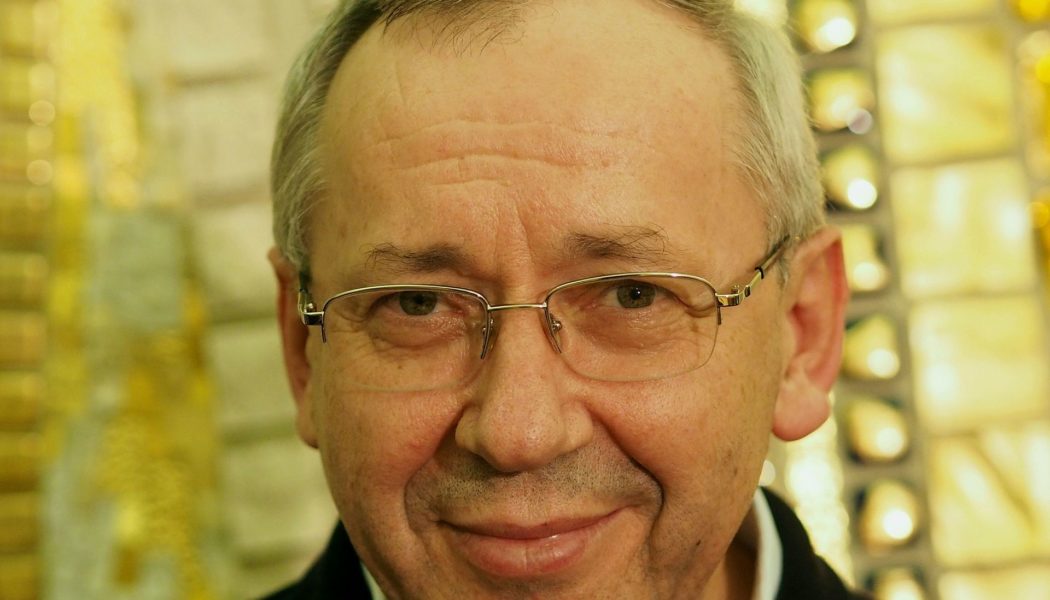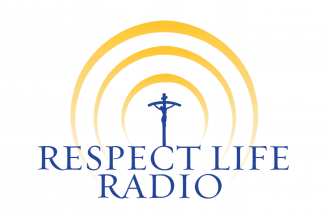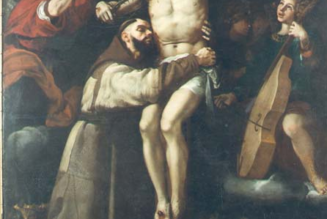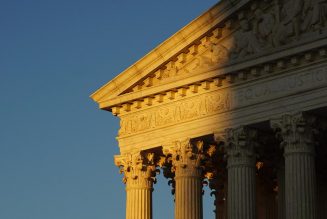
As disturbing abuse allegations against Fr. Marko Rupnik, SJ, became more well-known, Catholics around the world are asking – again – ‘What happened?’
How is it that a priest accused of serially abusing religious sisters was allowed to continue in a prominent ministry of celebrity, in which Rupnik has enjoyed appointments as a consultor to Vatican departments, designed high-profile Vatican logos, and been feted globally as a spiritual and artistic master — despite his declared excommunication for sacramental and sexual misconduct, and the appalling allegations of spiritual and sexual abuse?
How could this kind of allegation be mishandled in the Church — again?
Who is to blame? Who dropped the ball? With respect to more strait-laced readers — What the hell is going on around here?
It’s likely there is a lot of blame to go around. But facts are still being established in the case — the reporting which will lay bare a complete picture of things is still underway.
Nevertheless, there are some things about responsibility in the process that can be gleaned from what is already known about the case.
And at this stage of the unfolding story, it is at least possible to identify what questions would make more clear where the sum of responsibility lies — and whether anyone will be held to account.
—
First, of course, is the most obvious and undeniable element of the entire case: If the abuse allegations against Rupnik are true, he is the one responsible for them. Rupnik must eventually give account of himself to God, even if he does not first answer to ecclesiastical officials.
The judgment of God is the most consequential in any person’s life, and Christians with sufficient virtue are likely praying already that Rupnik is prepared for that day of trial.
At the Vatican, though, the Dicastery for the Doctrine of the Faith has faced the most criticism amid the Rupnik situation, especially regarding its handling of the second set of allegations.
Many Catholics have expressed outrage that while the bishop who investigated that allegation insists the claims are true, the Dicastery for the Doctrine of the Faith did not prosecute a canonical case against Rupnik over the alleged Slovenian abuse, owing apparently to the statute of limitations.
There is little, though, that is actually yet known about why exactly this happened, or what set of delicts – canonical crimes – the priest might have been charged with.
According to canon law, the DDF is responsible for determining how the Church should handle the most major crimes – graviora delicta – in the canonical disciplinary system. As part of its remit, the dicastery is given the authority to dispense from prescription for the graviora delicta crimes reserved to it.
Statutes of limitation, however controversial they’ve become, exist for a reason in law — namely that making a defense against allegations becomes more difficult over time.
Victims’ advocates have sometimes called for an eradication of any prescription limits in canon law regarding cases involving the prospect of sexual abuse, and indeed, in recent years the time in which a case can be prosecuted has been lengthened for a number of related offenses.
But as it stands, prescription does exist, and so in each case a judgment must be made.
Ordinarily, as a matter of practice, the DDF waives prescription when the ordinary – the religious superior or diocesan bishop – requests that it be waived when he sends the case to Rome.
The Rupnik abuse case is unusual because it does not seem to have actually come from the priest’s ordinary, his provincial superior or the superior general of the Jesuits. Instead, it seems that the allegations of Rupnik’s Slovenian abuse emerged while Bishop Daniel Libanori was in Slovenia, conducting an apostolic visitation to the religious community the priest is alleged to have abused.
The DDF itself then authorized a preliminary investigation, and considered the results, before concluding in October 2022 that the case could not proceed.
But it is not known why the DDF concluded prescription would not be waived in this case.
It could be that the investigation itself suggested that a penal process would not offer probatively sufficient evidence for a definitive resolution — that the proofs for or against a delict had ceased, that key figures had died in recent decades, or that the testimony in the preliminary investigation offered little that would lead to moral certitude. While Bishop Libanori said he thinks the allegations are true, the CDF’s officials might well have judged a paucity in the official acta of the case.
In short, officials might have concluded that the DDF simply would not be able to sufficiently undertake a trial on the issues, and therefore notified the Jesuits they’d have to make decisions about how to appropriately handle Rupnik absent a verdict. Such situations are not unheard of at the congregation.
But it might be that because there was no request from an ordinary to waive prescription, the dicastery just didn’t do it — relying on the usual way things are done, without a step back to consider the unusual nature of the Rupnik case, and the prospect for profound scandal, to say nothing of the victims’ call for justice, and the fact that the very same DDF had declared an excommunication against Rupnik for sexual and sacramental misconduct about a year before it began processing the Slovenian allegations.
At least some Catholics would regard that possibility as a kind of bureaucratic proceduralist myopia that should be better put in check.
While there is no ‘three-strike law” in the canonical system, many would imagine that having a record of a recent excommunication would highlight the importance of treating seriously a broader set of allegations. But it didn’t.
For victims, the decision may feel especially galling — for victims, the importance of a trial is not only that their abuser is kept out of ministry, but that their allegations are taken seriously as a matter of justice itself — that there is an understanding that justice demands more than the cessation of bad behavior, but accountability for it. While the Society of Jesus could have restricted Rupnik’s ministry – more on that below – only the dicastery could have moved forward with a trial — and for some, the unexplained decision not to do that feels a failure of justice itself.
Of course, there are journalists covering the story who point out that Rupnik is a Jesuit, and that many officials at the DDF – and at the papal apartment, for that matter – are also Jesuits, or had other close ties to Rupnik
It is a rather serious allegation to suggest that CDF officials swept a harrowing case under the rug for a confrere. There is always the possibility of unconscious bias, and the Church’s penal processes rarely consider sufficiently the unconscious impact of conflicts-of-interest. But there is not any actual evidence suggesting that Jesuit disciplinary officials at the DDF brazenly covered over profoundly harrowing allegations.
In fact, the problem with trying to make much of an assessment about what happened at the DDF is that the dicastery will not speak about the case — and is, in fact, not permitted to speak publicly about penal cases.
Vatican child-protection leader Fr. Hans Zollner, SJ, challenged this month the DDF’s decision-making on Rupnik, urging the dicastery to be forthcoming and transparent about its decisions in the case. But the prospect of the dicastery doing so is very slim — unless Pope Francis orders the dicastery to open its books.
Without the correspondence between the parties involved in the case, the acts of the investigation, and the freedom for officials to speak about those things, it is premature to reach conclusions about blame at the DDF.
And since there are no open-records laws in the Church’s legal system, only the college of cardinal members of the DDF probably knows the whole story — and since that body sets procedures, tone, approach, and has the final say in internal appeals on things like waiving prescription, it is fair to ask whether the dicastery’s cardinal members might be part of the problem, rather than part of the solution.
Some observers have also raised a point of concern about the DDF’s first engagement with Rupnik — not its 2021 review of his alleged abuse in Slovenia, but the 2019-2020 DDF process which saw thee dicastery declare Rupnik excommunicated for attempting to sacramentally absolve a woman after sexual contact.
According to the Jesuits, the DDF declared Rupnik excommunicated in May 2020, and then because the priest was apparently contrite, the dicastery remitted the penalty in the very same month. This happens.
But the DDF didn’t tell anyone but the Jesuits and Rupnik himself about any of that. As a matter of course, the dicastery does not make public statements every time it declares a cleric somewhere in the world excommunicated. But not every priest is Rupnik, an officially appointed expert at several Vatican departments.
Excommunication is a public penalty, with public consequences — and announcing that Rupnik had been excommunicated for attempting to sacramentally absolve a sexual partner might have encouraged the priest’s potential victims to come forward, and signaled to Catholics that Rupnik is apparently not the spiritual master he has so frequently been proclaimed to be.
It likely would have taken a decision from DDF prefect Cardinal Luis Ladaria, or even from the full cardinal membership of the dicastery, to announce the imposition of a penalty. But the Rupnik affair makes clear that in the case of very high-profile clerics, failing to announce directly the imposition of penalties can have compounding effects of scandal.
—
The facts about how the Society of Jesus handled the case are also quite murky — but more can be concluded about the Jesuit’s role in the Rupnik scandal, because of the order’s responsibility for Rupnik himself.
Rupnik’s case is front-page news almost daily in Italy, and in Slovenia – are mostly incredulous that a priest briefly excommunicated for sexual and sacramental misconduct continued to function in ministry – and elevated as a spiritual authority at the Vatican itself – even while he was accused of a pattern of abuse and manipulation which one alleged victim describes as a “descent into hell.”
And as the case has made headlines, the Society of Jesus has changed its story about when exactly it restricted Rupnik’s ministry: The Jesuit order first claimed it restricted Rupnik’s ministry in 2021 when the abuse allegations were made at the DDF, and then, when journalists uncovered the 2019 penal process leading to Rupnik’s excommunication, the Jesuits said he had actually been restricted in that year.
Some have found that a bit too convenient.
In either case, the order has been unable to explain why Rupnik’s apparent restrictions did not stop the priest from Vatican appointments and honors, from designing logos for global Church events, from receiving honorary doctorates, from being the rector of a church in Rome, or from giving talks in seminaries and at diocesan events.
While the DDF is taking flak for not conducting a trial, the Society of Jesus didn’t actually need a trial to limit Rupnik’s ministry much more severely than it actually did.
The Jesuits could have decided internally that Rupnik, facing profound allegations, should not be permitted to retain many of his high-profile activities, and the order could have notified Vatican departments that the priest would be resigning his appointments.
When the DDF informed the Jesuits in October that there would be no trial, Rupnik could well have been grounded, directed to a life of prayer and penance in the Jesuit generalate, with a recognition that the priest was withdrawing from public life because of abuse allegations against him.
In fact, when Rupnik’s excommunication was declared in 2020, the Society of Jesus could have publicly announced it. But the Jesuits didn’t do that.
Instead, the Society of Jesus claims now that Rupnik’s ministry was restricted, even while there is no evidence of any such restrictions.
—
As it happens, the dicastery and the Jesuits are not the only ones who could be besmirched in the wake of the Rupnik scandal.
Pope Francis himself has been frequently criticized — it has been suggested that the pope personally lifted the excommunication against Rupnik (he didn’t) or that the pope personally invited Rupnik to preach a 2020 retreat for the Roman Curia (unlikely).
But the pope was probably aware of at least some elements of the Rupnik saga – the Jesuit superior general himself has said as much. There is no information to indicate that Pope Francis put his thumb on the scale to assist his fellow Jesuit, but the pontiff does have a track record for downplaying or ignoring persistent abuse claims against personal friends. It is not clear how that fits into this narrative.
For his part, Cardinal Angelo De Donatis, the apostolic vicar of Rome, released on Friday a lengthy statement aimed at clarifying that the Rome diocese is not responsible for the scandal surrounding Fr. Rupnik.
The Diocese of Rome’s Dec. 23 statement emphasized that while Rupnik has a “multi-level pastoral relationship with the Diocese of Rome … he is not in a position of hierarchical submission to the Cardinal Vicar at a disciplinary and possibly penal level.”
In other words, Cardinal De Donatis said, we can’t do anything about the accusations against this priest.
The statement emphasized its desire for healing and the discovery of truth, and recognized that it might have to limit the Centro Aletti, a center for art, culture, and theology, which was erected a public association of the faithful in the Diocese of Rome in 2019. The statement also affirmed that the diocese “will probably” have to take “a series of measures with respect to the diocesan canonical offices – the only ones directly subject to the authority of the Cardinal Vicar – with which Fr. Rupnik is still invested, in particular that of Rector of the Church of St. Filippo Neri all’Esquilino and Member of the Diocesan Commission for Sacred Art and Cultural Heritage.”
But it also pushed back on media reports about Rupnik’s case, with De Donatis citing “disconcerting communication, especially from the media, which disorients the People of God.”
The cardinal insisted that “the judgments that we see spread by many with particular vehemence, do not seem to manifest either an evangelical criterion for the search for truth, or a basic criterion on which every rule of law is founded.”
But at the heart of the matter is the cardinal’s emphasis that “the situation… has been widely dealt with in judicial venues which completely fall outside the competence of the Cardinal Vicar, and which is now managed independently by the legitimate Superiors of Fr. Rupnik.”
The cardinal’s point was clear: “This isn’t our case.”
De Donatis is right. The case does not belong to the Diocese of Rome, which is keen to avoid the splashback.
But the Society of Jesus and the Dicastery of the Doctrine of the Faith are unable to be quite so direct. In one way or another, the case has belonged to them.
And while the situation is complicated, Catholics will continue to ask questions about where responsibility lies. They are not likely to be satisfied with magisterial silence, or with shifting statements and a flexible relationship to the truth.
Join Our Telegram Group : Salvation & Prosperity








